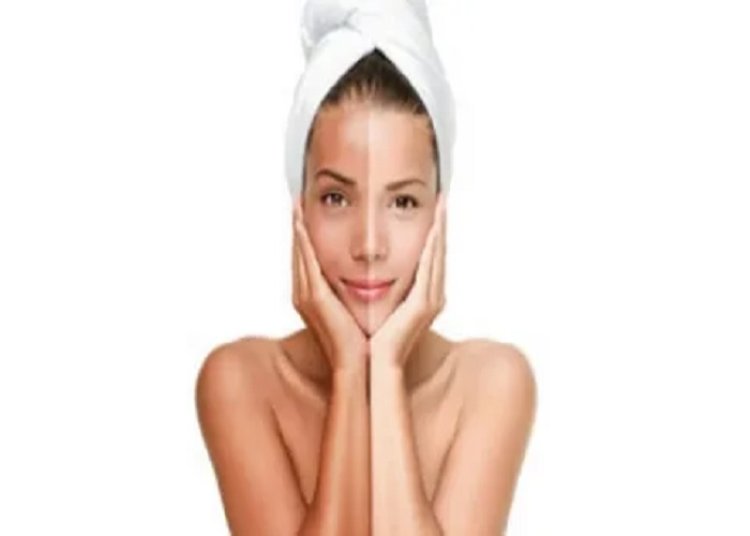Skin Whitening in Riyadh: A Cultural Exploration and Health Perspective
the demand for Skin whitening in Riyadh, the potential health risks associated with their use, and the ongoing shift toward embracing diverse beauty standards.
Share this Post to earn Money ( Upto ₹100 per 1000 Views )
In Riyadh, the capital of Saudi Arabia, the pursuit of beauty is deeply intertwined with cultural norms, societal expectations, and personal identity. Among the various beauty trends, skin whitening has emerged as a significant topic, raising questions about motivations, health implications, and changing perceptions of beauty. This blog delves into the factors driving the demand for Skin whitening in Riyadh, the potential health risks associated with their use, and the ongoing shift toward embracing diverse beauty standards.
#### Cultural Influences on Beauty Standards
Historically, lighter skin has been idealized in many cultures, including those in the Middle East. This preference can be traced back to social hierarchies where fair skin often signified wealth and higher social status. The notion that lighter skin is more desirable persists in Saudi society, where it is often linked to beauty, femininity, and even success.
In Riyadh, media and advertising play a significant role in perpetuating these ideals. Beauty advertisements typically feature models with fair skin, creating a standard that many individuals aspire to meet. The influence of social media further amplifies these messages, with influencers showcasing lighter skin as a hallmark of beauty and sophistication. This societal pressure leads many, particularly women, to seek skin whitening products to align with these prevailing beauty standards.
#### The Market for Skin Whitening Products
The skin whitening market in Riyadh is extensive, offering a wide range of products, including creams, serums, and treatments. These products promise quick results, appealing to consumers eager to achieve a lighter complexion. However, the safety and effectiveness of these products are often questionable.
Many skin whitening products contain active ingredients like hydroquinone, kojic acid, and mercury. Hydroquinone is effective in reducing pigmentation but can cause serious side effects, such as skin irritation and a condition called ochronosis, which results in a bluish-black discoloration of the skin. Mercury, frequently found in unregulated products, poses severe health risks, including kidney damage and neurological issues.
Despite regulatory efforts by the Saudi Food and Drug Authority (SFDA) to control harmful substances in cosmetics, many unlicensed and potentially dangerous products remain available in the market. This situation highlights the importance of consumer education and awareness when selecting skincare products.
#### Health Risks and Professional Guidance
As the trend for skin whitening grows, healthcare professionals in Riyadh are increasingly vocal about the associated health risks. Dermatologists emphasize the necessity of making informed choices regarding skincare and often warn against using unregulated products.
For those seeking to lighten their skin or address pigmentation issues, dermatological treatments such as chemical peels, laser therapy, and microdermabrasion offer safer and more effective alternatives. These procedures are conducted under professional supervision, ensuring safety and optimal results.
Additionally, maintaining a robust skincare routine focused on sun protection is essential in Riyadh’s harsh climate. The intense sun exposure can exacerbate pigmentation issues, making the regular use of sunscreen crucial for maintaining healthy skin.
#### Changing Perspectives on Beauty
While the desire for lighter skin remains prevalent, a gradual shift in societal attitudes is beginning to take shape in Riyadh. Influencers and advocates are increasingly promoting messages of self-acceptance and celebrating diverse beauty. Social media platforms are becoming spaces for individuals to challenge traditional beauty norms and share their experiences, encouraging others to embrace their natural skin tones.
This change is particularly significant for younger generations, who are more aware of the dangers associated with harmful beauty practices. Many are finding empowerment in self-love and authenticity, advocating for a broader definition of beauty that values individuality over conformity.
#### The Importance of Education and Awareness
Education plays a crucial role in reshaping attitudes toward skin whitening. Public health campaigns aimed at informing consumers about the risks associated with certain products can effectively challenge harmful beauty standards. By fostering awareness of the potential dangers of harmful ingredients, Riyadh can encourage individuals to prioritize their health and well-being.
Moreover, initiatives that celebrate diversity and promote self-acceptance can help shift perceptions around beauty standards. Emphasizing that beauty exists in all shades can cultivate a more inclusive environment, encouraging individuals to embrace their unique features.
#### Conclusion
The issue of skin whitening in Riyadh is multifaceted, reflecting a complex interplay of cultural values, health considerations, and evolving societal norms. While the pursuit of lighter skin remains a significant aspiration for many, the growing movement toward self-acceptance and the celebration of diverse beauty offers a hopeful path forward.
By prioritizing education, safety, and the promotion of natural beauty, individuals can navigate the intricate landscape of beauty standards with confidence. Embracing the rich diversity of skin tones enhances individual self-esteem and contributes to a healthier, more accepting society. Ultimately, the conversation around skin whitening is evolving, moving from a narrow focus on lightness to a broader appreciation for the unique beauty inherent in every individual.
















